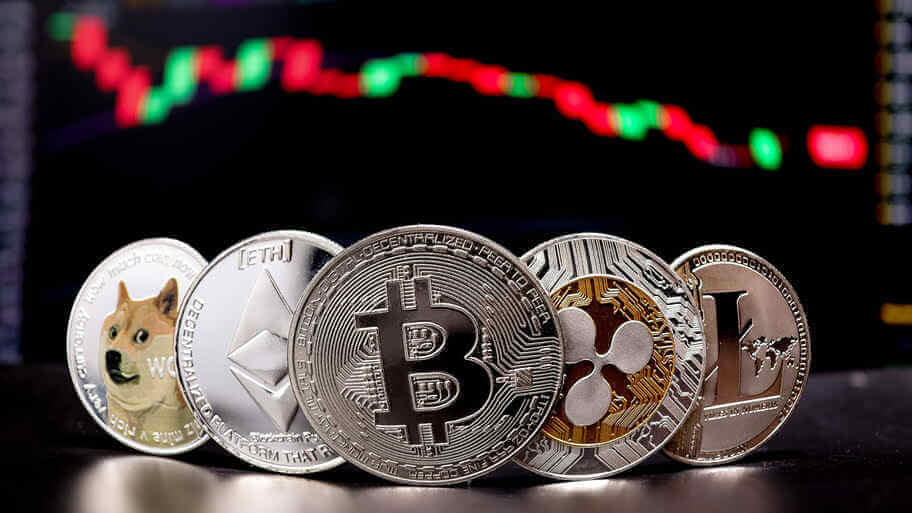Since the launch of Bitcoin in 2009, the world of cryptocurrency has constantly evolved, eventually leading to the introduction of tokens. Crypto tokens like Uniswap, Filecoin, and CryptoBonusMiles tokens have gained popularity because of their diverse applications for crypto users and investors.
Before deciding to invest in coins or tokens, you should understand the differences. It is easy to confuse cryptocurrency coins, namely Bitcoin and Ethereum, with crypto tokens. However, these are not the same. While crypto tokens and coins are both based on blockchain technology, each using an encryption technique known as cryptography, they serve distinct purposes.
What Are Crypto Tokens?
Tokens can represent assets or access rights which are granted to their holder. Tokens can be used for many functions, from making payments to offering voting rights in a network. Crypto tokens are built on existing blockchains that provide them with validation and security. Some common examples of tokens are Uniswap, Tether, Filecoin, CryptoBonusMiles token, and Polygon.
With smart contracts, a token holder can gain access rights to programmable assets without a third party. They do so through the use of private keys. A smart contract, also known as a “crypto contract,” is a set of codes containing automated or self-executing agreements among participants, typically between a buyer and a seller.
Smart contracts are decentralized (not controlled by any government authority), immutable, and processed by the blockchain. As a result, crypto token transactions are transparent, irreversible, and easy to trace with smart contracts.
Crypto Tokens vs. Coins
You should not confuse crypto coins and tokens, especially when you’re looking to invest, as there are several notable differences.
Firstly, crypto coins have their own blockchain platforms. On the other hand, crypto tokens rely on previously-built blockchain infrastructure for their validity and security. So, crypto tokens are dependent on the blockchain platforms created by crypto coins. For instance, Ethereum, Waves, and Omni are some of the platforms where crypto tokens are built.
Furthermore, coins and tokens have different uses. Crypto coins function like a digital version of fiat currency and are used to foster exchanges. By contrast, tokens can serve multiple functions, such as representing voting rights in a network, investing, or making purchases. Tokens can represent assets and securities, not just currency.
Now that we have differentiated crypto coins from tokens, you should better understand whether to invest in coins or tokens.
Types of Crypto Tokens
Crypto tokens are developed for specific purposes. For instance, you can invest in a token just like a coin and it can also serve as a means of payment. The process of converting assets into a token that can be stored and recorded in a blockchain is known as tokenization. Hence, tokens are given out through an Initial Coin Offering (ICO) or Security Token Offering (STO). Tokenization is best understood by knowing the different forms in which tokens exist, some of which are;
Utility Tokens
These are the most common form of tokens. The value of utility tokens is determined by their usage and functions. Utility tokens are launched through an ICO and are issued to users to benefit from the developers’ service. Succinctly put, utility tokens are not for holders to make profits but as a means of exchange for a service. As such, most utility tokens are not created as a way of investment, but as a way of contributing to a network. A real-life equivalent of a utility token is a bus ticket or a fiat currency paid for service.
For instance, Filecoin is a utility token developed for users to pay for more cloud storage space. Filecoin’s review shows that the token is unique in its economic incentive. A typical example of utility token is the Basic Attention Token (BAT) which pays publishers and users of digital advertising platforms through the use of Brave Browser. Utility Tokens are usually built on blockchain technology such as ECR-20.
Security Tokens
Security Tokens are becoming one of the fastest-growing tokens globally. According to a report published by Quinlan and Associates, security tokens will grow to $162.7tn by 2030. Unlike utility tokens, security tokens are a means of investment. Creators of security tokens launch Security Token Offerings (STO), an equivalent of ICO, to allow users to get access to investors and investment community alike.
Different investors can come together to gain access to assets that are usually too big for one investor. A security token gives ownership and voting rights to its holders. Therefore, unlike utility tokens which are means of payment, security tokens are similar to the stock of a company which makes the holder one of the owners of that entity.
To make profits from security tokens, you buy and hold until their value increases and then sell or exchange them for other assets. Essentially, security tokens are used by startups to raise money from investors, and holders of such tokens can use them as collateral for a loan. Furthermore, security tokens are also known as equity tokens as they pay dividends and fractionalize assets. Blockchain Capital’s BCAP and Sia Funds are two well-known examples of security tokens.
Transaction Tokens
Paying and receiving money via such platforms as Paypal and Payoneer attract certain fees which can be enormous when accumulated to a certain degree. Even fiat money transfers through the traditional banking system tend to include charges. Transaction tokens were created to alleviate the hassle of money transfers. That is, transaction tokens are used to transfer money, pay for purchases and they come with low fees.
A typical example of a transaction token is the MEP token created on top of the ERC-20 blockchain, which aids in the payment of medical expenses and helps to carry out other transactions on the Medipedia platform. Another example of a transaction tokens is xDai, which is on the Ethereum network, and is created for low cost, fast, and stable transactions.
Platform Tokens
Decentralized Applications or Distributed applications, popularly known as dApps are supported by platform tokens. Platform tokens are diverse and can serve many purposes. We’ve established that tokens are built on a blockchain infrastructure already existing, thereby gaining from the infrastructure’s security and validation. Consequently, the most versatile platform token is ECR-20 which hosts many decentralized applications that vary from gaming apps to applications for making purchases. For example, through Uniswap airdrop, Uniswap token has created a decentralized platform for versatile purposes.
What Are Non-Fungible Tokens (NFT)?
The year 2020 witnessed a surge in the use of non-fungible tokens. With Jack Dorsey selling his first tweet for an NFT worth $2.9 million in the first quarter of 2021, the publicity around NFT has increased significantly. This has, in no doubt, boosted the volume of NFTs trading. Now, what are non-fungible tokens? First, non-fungible means non-replaceable. Therefore, you cannot exchange one non-fungible token for the other as each item is specifically created uniquely.
Non-fungible tokens use blockchain technology to keep track of the ownership and exchange of digital assets. Digital assets include memes, songs, videos, and items in video games. They can be very rare, like art, or considerably common assets. Nevertheless, the value of non-fungible tokens is determined by the rarity and the uniqueness of the digital asset. That is, the more unique the item, the higher its value. On the flip side, non-fungible tokens cannot be duplicated or changed as they exist on a blockchain, hence, they can be used as proof of ownership.
In Summary
-
-
- A crypto token is built upon a template already created in a blockchain of a crypto coin while feeding on the features of the platform.
- A smart contract is an agreement that explains the function and features of a crypto token that are written in codes and executed after the purpose of the contract is achieved.
- A crypto coin is different from a crypto token where the former is independent and mostly serves as a means of exchange; the latter can have multiple forms and purposes.
- Crypto tokens can be used to enjoy a specific service, a means of payment, a way to invest and make profit, and a platform. That is; crypto tokens can exist in the form of utility, transaction, security, and platform.
- Non-fungible tokens utilize blockchain infrastructure to record and keep track of ownership of a digital asset.
-
Featured Image: Twenty20








